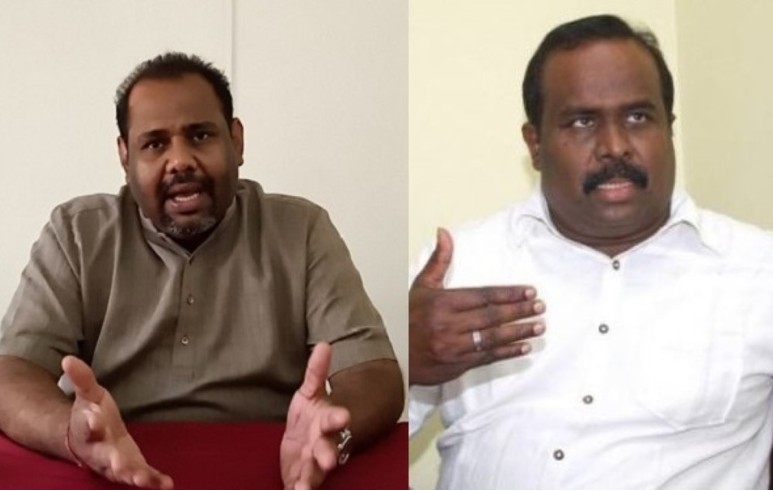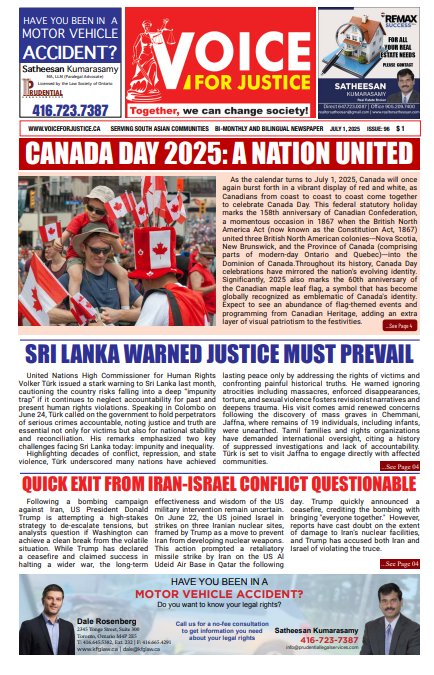Tamil Leaders Request Regarding the Chemmani Mass Grave
09-Jul-2025.

The Chemmani mass grave, or the war crimes committed during the final phase of the war in 2009, cannot be described merely as isolated violations against Tamils. Rather, since the country gained independence in 1948, violations against Tamils have been continuously documented.
Representatives of Tamil nationalist political parties have emphasized that the unexpectedly discovered Chemmani mass grave should be regarded as a foundation to launch broader investigations into all forms of violations committed against Tamils.
While establishing the truth, ensuring justice, and accountability regarding the Chemmani mass grave is essential, the representatives also stressed the necessity of adopting a comprehensive approach to the widespread violations against Tamils.
Commenting on this, Sivagnanam Shritharan, Chairman of the Parliamentary Group of the Ilankai Tamil Arasu Kachchi, stated: "Recently identified remains in the Chemmani mass grave, including the skeletal remains of children, school bags, slippers, and dolls, have shocked the conscience of the world. What has been discovered at Chemmani constitutes crucial evidence of the genocide committed against Tamils. Nevertheless, certain political groups are attempting to dismiss the facts by labeling them as mere fabrications."
At the same time, Shritharan insisted that attention must also be given to mass graves uncovered in other locations such as Mannar, Kokku Thoduvai, and Thiruketheeswaram, and that the truths about them must not be obscured.
Referring to evidence provided by the former Bishop of Mannar, Rayappu Joseph, he noted that during the final phase of the war concluded in 2009, over 100,000 individuals were reported missing or killed, and therefore this issue must be viewed comprehensively.
Similarly, Gajendrakumar Ponnambalam, Leader of the Tamil National People’s Front and Member of Parliament, highlighted that the Chemmani mass grave matter should serve as a basis for broad investigations into the violations perpetrated against Tamils since independence in 1948, and for establishing justice and accountability as well as achieving a political solution for Tamils.
"The Chemmani mass grave or the war crimes committed during the final phase in 2009 cannot be portrayed in isolation as violations against Tamils. Since the country gained independence in 1948, violations against Tamils have been systematically recorded, which eventually led to the rise of armed struggle. Yet, following the end of the war, discourse has been limited only to the violations that occurred during the final stages.
"After the war ended, we insisted on investigations into all violations committed against Tamils. However, due to the failure of Tamil leadership at the time to press for this, and the establishment of mechanisms prioritizing domestic inquiry, no comprehensive investigations were conducted.
"In this context, the Chemmani mass grave, now unexpectedly uncovered, must be seen as a foundation to initiate investigations into all forms of violations against Tamils. Only through such a process can accountability for the war crimes and violations be ensured, and a political solution be obtained to protect the existence of the Tamil people," Gajendrakumar clarified.







